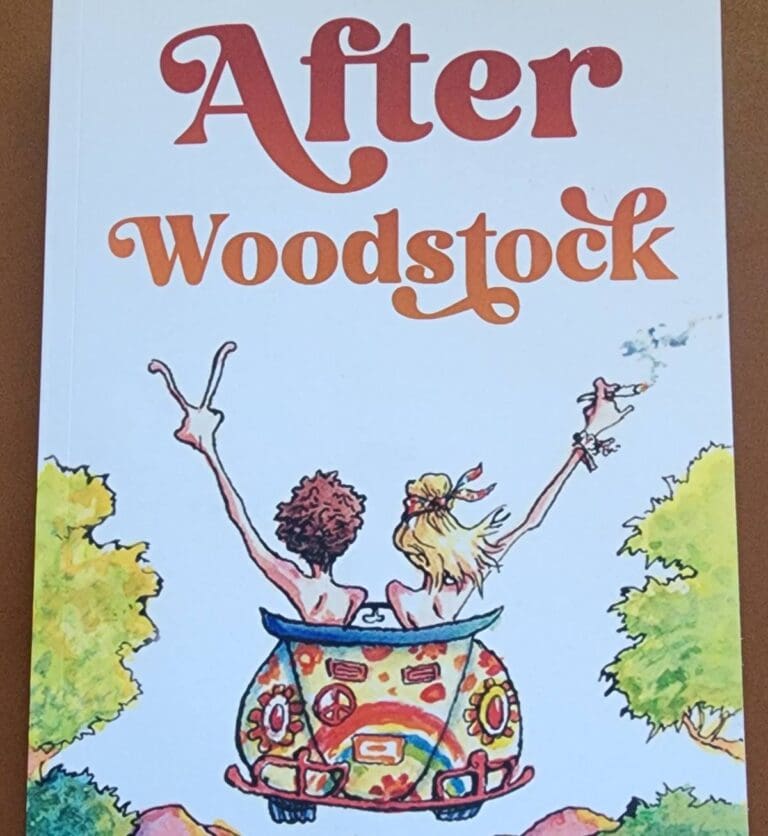Heady NJ was sent a book called “After Woodstock,” which features weed consumption from the 60s till now, to review.
Table of Contents
We have not reviewed books before. But we’re always up for something new. Since the cover depicts a man with a joint, it seemed worth it.
After Woodstock is about two childhood friends who go on radically different paths after attending the legendary Woodstock festival in the Catskill Mountains of New York in August 1969, not far from North Jersey.
It is narrated by the conservative friend Ryan or Ry or Bri, who rejects the Woodstock nation* flower power child hippie movement that his friend Jack or Jacko or Bodi embraces wholeheartedly.
After the festival, Jack cuts off all ties with his previous life except for writing letters to Ryan.
Jack writes letters to Ryan but never leaves a return address until after 4 years of college. He rejects traditional values and brings up unique ideas that his friend generally dismisses.
Jack becomes a hardcore hippie to the point where, in the 80s, he doesn’t go to his parents’ funerals. He says funerals are too capitalistic.
Ryan is driven by a desire for success and the wealthy lifestyle of a big-time New York City lawyer who would have liked Gordon Gecko from the movie Wall Street.
He is grounded by traditional values, which he accepts unquestioningly, versus his friend, who embraces every pillar of the hippie movement.
Hippy Weed Back in the Day
The traditional success-driven narrator, Ryan, enjoys weed throughout college. Funnily enough, it is his idea to go to Woodstock in the first place.
While there, he is offered a bag of weed without seeds or stems, known as sinsemilla, for only $10. Like many, he doesn’t take long drags or puffs that you need to get high and then coughs a lot the first time, like many newbies. Unfortunately, he quits after college because he thinks it could put his career as a corporate lawyer at risk.
People used to get felony charges for possessing marijuana at the lowest point of marijuana prohibition. So, he might have had a point.
As the story goes o,n Jacko decides to sell grow weed for money. Ryan says the Law likes to throw the book at growers to scare his friend.
While Jack is not scared, he does lose his crop to more serious and violent underground legacy operators and gets out of the business. However, he loves to weed his whole life.
A lot of the book is very philosophical. Overall, it’s pretty good if you like historical fiction about the recent past.
Passing the Cannabis Torch
The hippie radicals were the first group to actively call for the end of federal marijuana prohibition. It unfortunately began under President Franklin Roosevelt in 1937 after a series of regulatory laws were first passed.
Sme remained in the cannabis legalization movement and the business. But many other activists have passed their torches over the decades and years to younger generations. The growth of the movement is what makes cannabis legalization an idea whose time has come.
Overall, society has accepted a few hippie principles, while their styles might seem silly and only good for a Halloween costume. But the values persist, and the fight for federal marijuana legalization continues.












